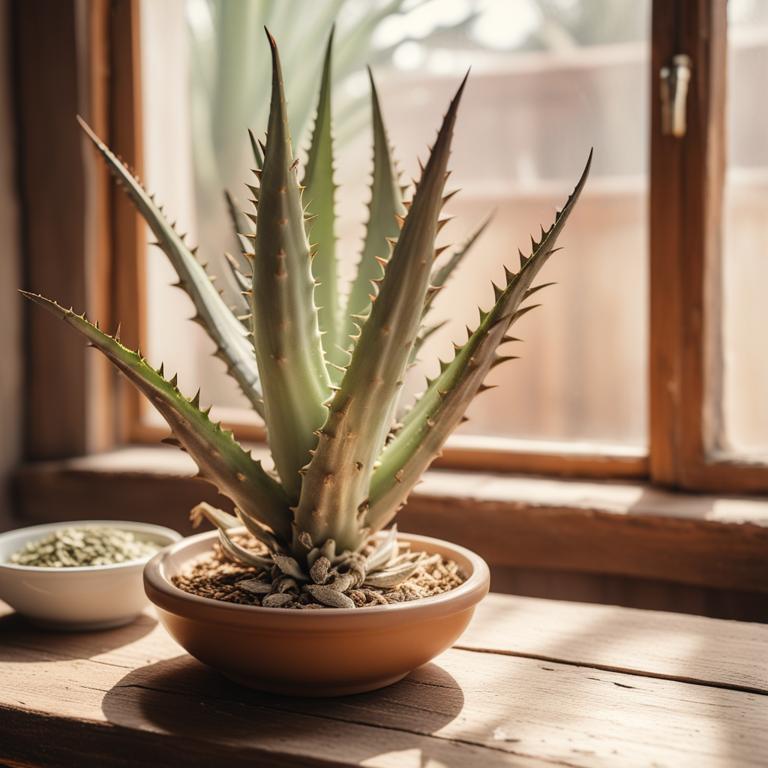Updated: Dec 1, 2024
Itchy Eyes: Exploring Medicinal Herbs and Natural Treatments

Itchy eyes can be a frustrating and annoying problem that affects many people.
When you have itchy eyes, you may feel like you have sand or dust in your eyes, and you may rub your eyes constantly, which can make them even worse. This can make it hard to focus on daily activities, and even simple tasks like watching TV or reading a book can become a challenge. Itchy eyes are often caused by allergies, dry air, or irritants like pollen, dust, or chemicals. Sometimes, it can also be a sign of a more serious underlying condition, like an eye infection or a skin condition like eczema.
Whatever the cause, itchy eyes can be uncomfortable and disrupt your daily life. Fortunately, there are some natural remedies that can help soothe itchy eyes. Herbs like eyebright, calendula, and chamomile have anti-inflammatory properties that can help calm the eyes and reduce itching. You can make a tea by steeping dried eyebright or calendula flowers in hot water, then straining it and using it as an eye wash. Alternatively, you can apply a cooled compress soaked in a chamomile tea to your eyes to help soothe the itching. Some people also use herbal eye drops made from these herbs to get quick relief.
These natural remedies can be a gentle and effective way to manage itchy eyes and get back to your daily activities.
Table of Contents
What initiates itchy eyes?
The main causes of itchy eyes are usually related to something that irritates or bothers them.
One common cause is pollen from plants, trees, and flowers, especially during peak allergy seasons. When pollen enters your eyes, it triggers an allergic reaction, making your eyes itch and feel irritated. Another cause is dust mites, tiny creatures that live in bedding, carpets, and upholstered furniture. Their waste and body parts can get into your eyes and cause itchiness. Allergies can also cause itchy eyes, especially if you're allergic to something in your environment, like pollen or dust mites.
When your body reacts to these allergens, it releases histamine, a chemical that makes your eyes itch and feel watery. Eye infections, like conjunctivitis, can also cause itchy eyes, often accompanied by redness, discharge, and swelling. This happens when a virus or bacteria infects the surface of your eye. Dry eyes are another common cause of itchy eyes, especially for people who use computers or read for long periods. When you don't produce enough tears or they don't have the right balance of water and oils, your eyes can become dry and itchy.
Finally, wearing contact lenses can also cause itchy eyes, especially if you don't clean them properly or if you have an allergic reaction to the contact lens solution or the lens itself.
What benefits can herbs provide for itchy eyes?
Using herbs for itchy eyes can be a great natural remedy.
They can help reduce the itchiness and discomfort caused by allergies, dry air, or other irritants. These herbs can also help to calm and soothe the eyes, making them feel more comfortable and relaxed. Some herbs can even help to reduce inflammation and swelling, which can make the itchy eyes feel even worse.
Additionally, using herbs can be a gentle and non-irritating way to care for your eyes, especially if you're sensitive to chemicals or have allergies. Many herbs can be used as eye drops, teas, or even infused in a warm compress to apply directly to the eyes. This can help to provide quick relief and comfort to itchy eyes, and can be a great alternative to traditional medicines or creams.
They can also be used in combination with other natural remedies, like a cool washcloth or a gentle massage, to create a soothing eye care routine.
What are the primary medicinal herbs for treating itchy eyes?

Herbs are a great way to soothe itchy eyes because they're often gentle and effective.
One herb, Calendula officinalis, has anti-inflammatory properties that can calm red and irritated eyes. It's often used as an eye wash to reduce swelling and ease discomfort. Achillea millefolium, or Yarrow, has antiseptic and anti-inflammatory properties that can help to reduce the risk of infection and ease itchy eyes. Its cooling effect can also bring relief to dry or irritated eyes.
Euphrasia officinalis, also known as Eyebright, is a natural remedy for itchy, watery eyes. It contains compounds that can help to reduce redness and swelling, making it a popular choice for treating conjunctivitis and other eye irritations. Chamomilla recutita, or German Chamomile, is another herb that's known for its soothing effects on itchy eyes. Its anti-inflammatory properties can help to reduce redness and ease discomfort, while its calming properties can help to reduce stress and anxiety that can exacerbate eye irritations. Symphytum officinale, or Comfrey, is often used to treat eye irritations and injuries.
Its anti-inflammatory and antiseptic properties can help to reduce swelling and ease pain, making it a popular choice for treating eye irritations and injuries.
What herbal preparations are most commonly used to cure itchy eyes?

Herbal preparations can be a great way to soothe itchy eyes.
A tincture is a liquid extract of herbs that can be added to water or put directly on the eyes to calm irritation. The high concentration of herbs in tinctures makes them effective for treating itchy eyes. A decoction is similar to a tincture but is made by steeping herbs in hot water, which makes it a good option for those who prefer a more diluted solution. A gel is another type of herbal preparation that can be applied directly to the eyes.
Gels are made by infusing herbs in a gelatinous substance, making them easy to apply and comfortable to wear. Capsules are a convenient way to take herbal supplements, and can be made from dried herbs that have been ground into a fine powder. For more intense relief, an ointment can be applied directly to the eyes. Ointments are made by mixing herbs with a greasy substance, such as petroleum jelly or beeswax, which makes them very effective at soothing itchy eyes. Herbs like calendula, chamomile, and aloe vera are commonly used to treat itchy eyes.
These herbs have anti-inflammatory properties that help reduce swelling and calm irritation.
Additional Resources:
Are there any herbs you should avoid if you have the problem of itchy eyes?
If you have itchy eyes, it's best to avoid Sambucus nigra, also known as black elderberry, because it can cause skin irritation, including eye irritation, in some people.
Ginkgo biloba, an herb often used to improve memory and circulation, can also exacerbate eye issues. Its extracts can cause eye problems, especially if you already have sensitive eyes.
Artemisia absinthium, or wormwood, is another herb to be cautious with as it can cause eye irritation and other skin issues. Sanguinaria canadensis, or bloodroot, contains a chemical that can irritate the skin and eyes, so it's best to steer clear of it if you have itchy eyes.
Urtica dioica, or stinging nettle, may seem like a harmless herb, but its extracts can cause eye irritation, especially if you already have itchy eyes.
FAQ
Are there any specific herbs that can prevent itchy eyes?
Chamomile and calendula are herbs known to soothe itchy eyes.
They have anti-inflammatory properties that can help calm irritated eyes. You can apply a cooled chamomile tea bag or calendula oil directly to your closed eyes for relief.
This can provide quick comfort from itchy eyes caused by allergies or dryness.
Is it safe to use herbal remedies for itchy eyes during pregnancy?
If you're pregnant and have itchy eyes, you might be tempted to try herbal remedies.
However, it's best to be cautious. Some herbs can affect your body's response to pregnancy hormones, and their safety during pregnancy isn't well understood.
It's a good idea to stick with tried-and-true treatments like eye drops or cool compresses.
Are there any herbs that can reduce the frequency of itchy eyes?
Some people find relief from itchy eyes with herbal remedies.
For example, the antihistamine properties in butterbur and the anti-inflammatory effects of eyebright may help reduce itching. Additionally, the soothing properties of licorice root and nettle leaf can calm irritated eyes.
These herbs may be found in supplements or teas.
Related Articles

Puffy Eyes: Understanding the Causes and Finding Natural Remedies

Frizzy Hair Causes, Medicinal Herbs, and Natural Preparations

Rashes: Causes and Homeopathic Herbal Solutions

Inflamed Mouth Care: Causes, Medicinal Herbs, and Natural Remedies for Healing

Shingles Causes and Herbal Preparations for Relief






